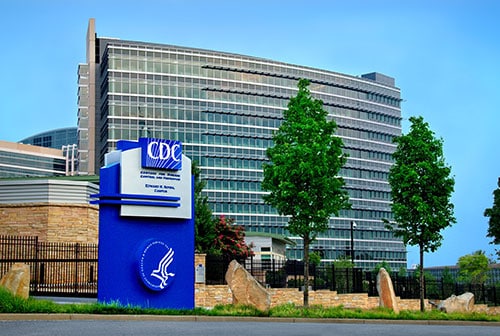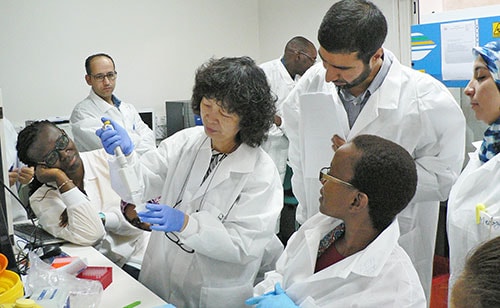Office of the Director
Mission:
The mission of the National Center for Immunization and Respiratory Diseases (NCIRD) is to prevent disease, disability, and death through immunization and by control of respiratory and related diseases.
The NCIRD Office of the Director (OD) oversees, coordinates, and evaluates activities across the Center, and collaborates with the Divisions to advance strategic priorities, such as data modernization, advancing health equity, and improve ongoing operations across science, program, policy, communication, and financial and human capital management.
Our Strategic Priorities:
- Strengthen the domestic immunization program
- Accelerate development and introduction of new vaccines
- Innovate through improved use of technology and systems
- Protect Americans from influenza, both seasonal and pandemic
- Improve prevention, detection, and control of respiratory disease threats, including COVID-19
- Nourish a culture that makes NCIRD the Healthiest Organization

What We Do:
- Implement national vaccination programs, monitor the use of vaccines, and oversee the Vaccines for Children program
- Set the nation’s recommended immunization schedule
- Collaborate and communicate with health departments, state and local agencies, partners, and the public to maintain and improve immunization rates and reduce the spread of vaccine-preventable and respiratory diseases
- Lead domestic and global influenza activities including pandemic influenza preparedness planning, influenza surveillance, and vaccine development
- Direct COVID-19-related epidemiology, surveillance and laboratory efforts, vaccine coordination, provide ACIP support, and contribute to outbreak response activities both domestically and globally



NCIRD In Action
Within the OD, there are several units that support its overarching mission.
- Office of Epidemiologic Science (OES) provides leadership across the center in epidemiologic science, surveillance, data modernization, coordination of the scientific/research agenda, and integration of health equity across the Center’s entire portfolio.
- Office of Global Health Preparedness and Response (OGHPR) protects the health of people in the United States through the strengthening of worldwide capacity to prevent, detect, and respond to respiratory and vaccine-preventable diseases.
- Office of Health Communication Science (HCSO) provides communication leadership and support with a focus on providing accurate, clear, and actionable health information when, where, and how people need it.
- Office of Informatics (OI) strengthens and supports programs with oversight of the information technology (IT) enterprise and through innovative application of information science and IT by providing data science, analytics, and visualization services to NCIRD programs.
- Office of Laboratory Science (OLS) ensures scientific integrity by supporting the development of robust systems for laboratory safety and quality and conducting cutting-edge science.
- Office of Management and Operations leads the Center’s resource management and operations activities to advance NCIRD’s mission.
- Office of Policy provides leadership and expertise on policy planning and analysis activities in cross-cutting and priority topic areas; conducts partner engagement; formulates annual budgets; and responds to time-sensitive political issues.
- Office of Surveillance ensures quality data and health information by strengthening vaccine-preventable and respiratory disease case-based surveillance coordination and outbreak control, and providing support across CDC, and with local, state, federal, and international public health partners.



